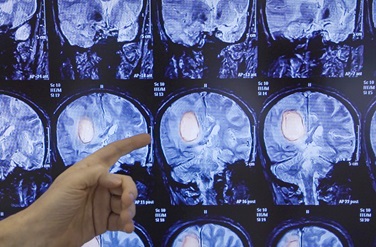Is glioblastoma (GBM) caused by the human cytomegalovirus herpes virus (HCMV)? This is the same aggressive, deadly brain cancer that killed Senators Ted Kennedy in 2009 and John McCain in 2018. Although not yet established as a formal cause, there is supposedly a connection. However, most cases of glioblastoma had the HCMV virus, per a report published in the reputable medical journal Cancer Gene Therapy. The medical community has been debating this for years.
In a study using mice as a biological model, scientists from the University Hospital of Bordeaux, the University of Franche-Comté in Besançon, and the Besançon University Hospital in France demonstrated the involvement of HCMV in the growth of glioblastoma.

According to the research “mounting evidence suggests human cytomegalovirus (HCMV) as a possible oncogenic virus.” Oncogenic refers to having the ability to cause cancer. As stated by the study authors, these most recent findings “fit with an in vivo HCMV-included glioblastoma model of oncogenesis, that could widen the door for innovative therapeutic approaches and evaluate the efficacy of immunotherapy and anti-HCMV treatment in combating [GBM].”
There are more than 100 different kinds of herpes viruses, and the American Cancer Society (ACS) states that the human Epstein-Barr virus (EVB) raises the risk of nasopharyngeal cancer, which is cancer of the back of the nose, as well as certain fast-growing lymphoma types. According to ACS, Hodgkin lymphoma and certain cases of stomach cancer may also be associated with EVB.
A tumor of the central nervous system (CNS) is regarded as glioblastoma. The National Cancer Institute states that the average survival rate is fewer than 6 months without treatment and fifteen months with treatment. Although the average five-year survival rate is 6%, those who survive will always have cancer and will need to get chemotherapy and radiation treatments for the remaining years of their lives.
